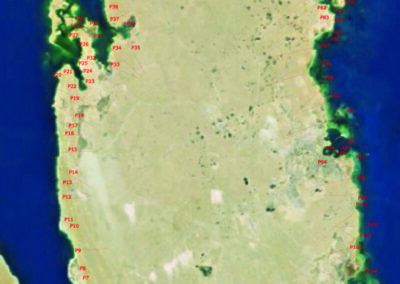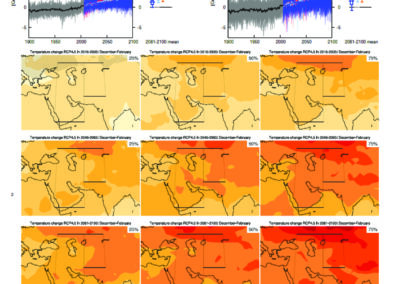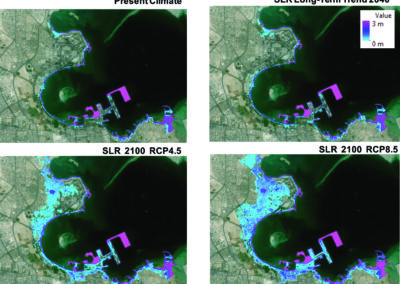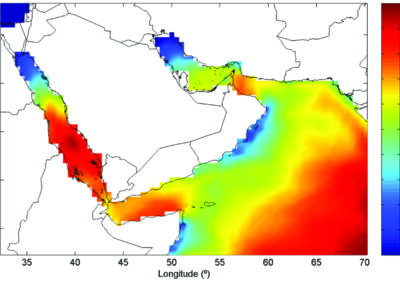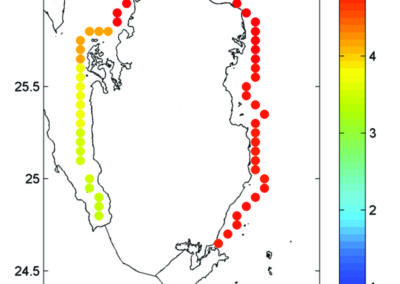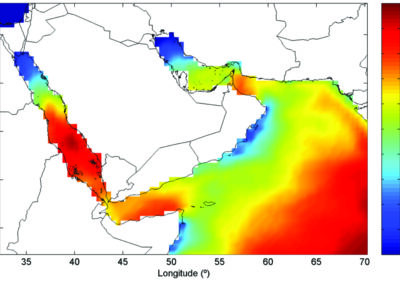QATAR
“Improving coastal governance based on stakeholder participation and coordination.”


QATAR
2013 – 2015
-
Qatar’s integrated coastal zone management (ICZM) plan aimed to improve the management of coastal resources and promote sustainable development of Qatar’s coastline. The plan defines an agreed vision for coastal management and development in Qatar, and sets out the strategic and operational objectives that will guide coastal activities in the coming years.
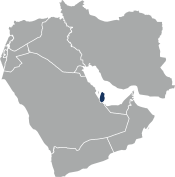
QATAR
2013 – 2015
Qatar’s integrated coastal zone management (ICZM) plan aimed to improve the management of coastal resources and promote sustainable development of Qatar’s coastline. The plan defines an agreed vision for coastal management and development in Qatar, and sets out the strategic and operational objectives that will guide coastal activities in the coming years.


CONTEXT
-
- REGION, COUNTRY: Qatar
- CLIENT: WES – Wataniya Environmmental Services Company (Qatar)
- SOURCE OF FINANCING: Ministry of Municipalities and Urban Planning (Qatar)
- SCOPE: International

WHAT HAS MADE THIS PROJECT UNIQUE?
-
- Supporting evidence-based decision making and innovation for contribution to the SDGs.
- Design of multidisciplinary, integrated and unique solutions to address the complexity of socio-ecological systems associated with water and ensure their resilience.
- Capacity building and knowledge transfer to new generations of professionals (research and management personnel) to promote the progress of science and society.

HOW HAS IT ALIGNED WITH OUR MISSION AND VISION?
-
- The project contributes to the promotion of scientific excellence and its transfer with a multidisciplinary and collaborative approach.
- It also focuses on the integrated management of socio-ecological systems associated with water and contributes to the vision of achieving a more sustainable planet.

WHAT LESSONS HAVE BEEN LEARNED?
-
- Need for a “vision of the coast” agreed upon by the stakeholders that establishes the framework and objectives of the management to be carried out.
- Importance of involving all stakeholders in the development of the plan.

WHAT HAS BEEN THE IMPACT OF THE PROJECT?
-
- Qatar now has a Coastal Management Plan that sets out a consensus vision of what the country’s coastline should be and establishes the strategic and specific objectives that will guide coastal activities over the next 10 years.
- More than 560 km of coastline are now managed in accordance with the new Plan.
- More than 2 million people now benefit from the new Plan.

WHY HAS IT BEEN SUCH A SUCCESS?
- Delimitation of the extent and potential uses of the coastal zone considering coastal hazards and impacts derived from climate change.
- Definition of the institutional framework, policies and regulations necessary for ICZM in Qatar.
- Creation of the roadmap and provision of the databases, tools and monitoring systems necessary for the implementation and continuity of the plan.

CONTEXT
CLIENT: WES – Wataniya Enviromental Services Company (Qatar)
SOURCE OF FINANCING: Ministry of Municipalities and Urban Planning (Qatar)
SCOPE: International

WHAT HAS MADE THIS PROJECT UNIQUE?

HOW HAS IT ALIGNED WITH OUR MISSION AND VISION?

WHAT LESSONS HAVE BEEN LEARNED?

WHAT HAS BEEN THE IMPACT OF THE PROJECT?

WHY HAS IT BEEN SUCH A SUCCESS?
PARTICIPATING ENTITIES
NARSS – National Authority for Remote Sensing and Space Sciences (Egypt)
AJEC – Al Jamali Environmental Consultants (Qatar)
PARTICIPATING ENTITIES
– NARSS – National Authority for Remote Sensing and Space Sciences (Egypt)
– AJEC – Al Jamali Environmental Consultants (Qatar)

